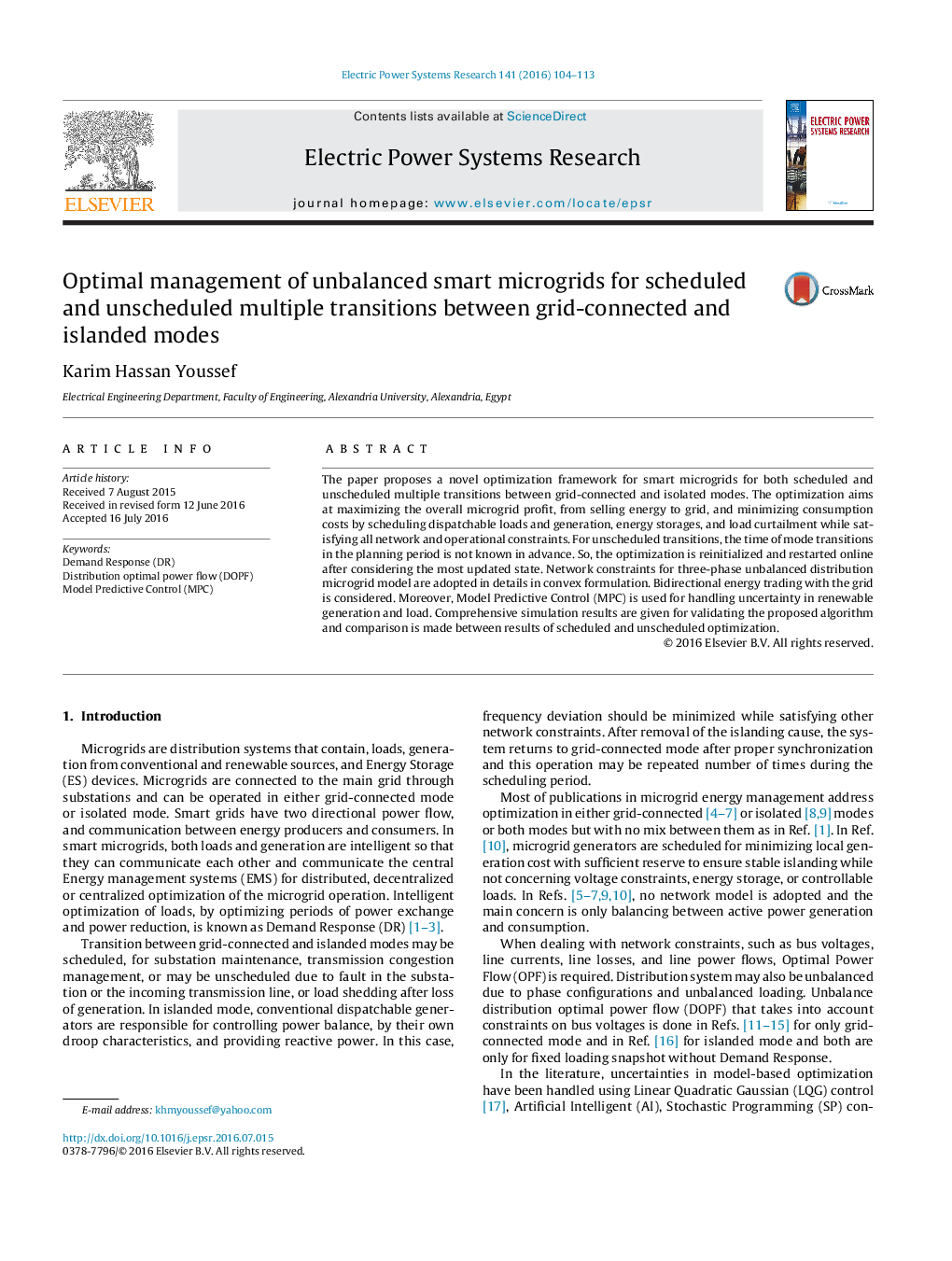| Article ID | Journal | Published Year | Pages | File Type |
|---|---|---|---|---|
| 704681 | Electric Power Systems Research | 2016 | 10 Pages |
•Microgrid optimization is done for both scheduled and unscheduled multiple transitions between grid-connected and islanded modes.•Unscheduled transitions are handled where the time of mode transitions in the planning period is not known in advance.•Constraints on the change of variables such as frequency deviation before and after transitions are adopted.•Detailed network model of three-phase unbalanced distribution system and network constraints is given in convex forms.•Model Predictive Control is proposed for accounting uncertainty in renewable generation and load.
The paper proposes a novel optimization framework for smart microgrids for both scheduled and unscheduled multiple transitions between grid-connected and isolated modes. The optimization aims at maximizing the overall microgrid profit, from selling energy to grid, and minimizing consumption costs by scheduling dispatchable loads and generation, energy storages, and load curtailment while satisfying all network and operational constraints. For unscheduled transitions, the time of mode transitions in the planning period is not known in advance. So, the optimization is reinitialized and restarted online after considering the most updated state. Network constraints for three-phase unbalanced distribution microgrid model are adopted in details in convex formulation. Bidirectional energy trading with the grid is considered. Moreover, Model Predictive Control (MPC) is used for handling uncertainty in renewable generation and load. Comprehensive simulation results are given for validating the proposed algorithm and comparison is made between results of scheduled and unscheduled optimization.
